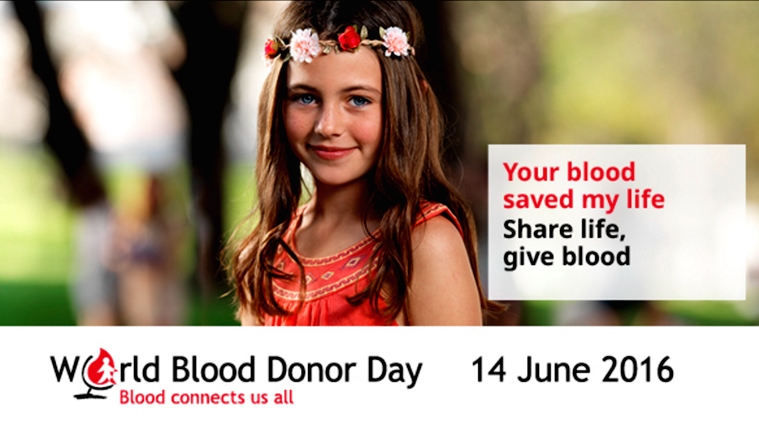📣 For more lifestyle news, click here to join our WhatsApp Channel and also follow us on Instagram
World Blood Donor Day: Dos and don’ts to keep in mind while donating blood
This year's theme for World Blood Donor Day is "Blood connects us all", which aims to motivate more people to donate blood globally. But, while doing so, it's always wise to keep some things in mind.
 This year, the WHO focus is on thanking blood donors globally, who have been helping the noble cause with the theme “Blood connects us all”.
This year, the WHO focus is on thanking blood donors globally, who have been helping the noble cause with the theme “Blood connects us all”.
According to doctors and the American Red Cross, a single blood donation can save the lives of up to three people. From a single unit of blood, doctors can use several individual components separately, such as red blood cells, white blood cells, platelets, etc. On the occasion of World Blood Donor Day (14 June) this year, the World Health Organization (WHO) is focusing on this good deed to motivate people to donate more blood voluntarily.
This year, the focus is on thanking blood donors globally, who have been helping the noble cause with the theme “Blood connects us all”. “Voluntary, unpaid blood donations must be increased rapidly in more than half the world’s countries in order to ensure a reliable supply of safe blood for patients whose lives depend on it,” read a WHO statement.
The slogan, “Share life, give blood”, draws attention to the role that voluntary donation systems play in encouraging people to care for one another and promoting community cohesion. “Although we have many external differences, the same vital blood pumps through all our veins,” says Dr Margaret Chan, WHO Director-General.
According to the organisation, about 108 million blood donations are collected globally every year. Nearly 50 per cent of these blood donations are collected in high-income countries, home to less than 20 per cent of the world’s population. The average blood donation rate is more than nine times greater in high-income countries than in low-income countries.
Transfusions of blood and blood products helps save millions of lives every year, including during emergencies such as conflicts, natural disasters, and childbirth. It can help patients suffering from life-threatening conditions live longer and with higher quality of life, and supports complex medical and surgical procedures. But it is imperative that we keep certain safety features in mind, while both donating and even receiving blood. Here are some dos and don’ts to keep in mind, while participating in blood donation camps and campaigns.
Make sure it’s safe
* Check the safety and hygiene standards of the local camps before you sign up to donate blood.
* This includes checking the cleanliness of vials and syringes being used, which should be new and not reused.
* Attendants and doctors should be wearing gloves while handling the blood.
* People with infectious diseases (even a cold) should not be allowed at the donation point.
* Make sure you have a donor card that specifies your blood type.
Can you donate blood?
* As a donor, it is your responsibility to ensure the quality of blood you’re donating.
* You must be above 18 years of age.
* You should not be underweight. “Usually donors weighing more than 45-50kg are acceptable,” says Dr Byotra.
* You should not be suffering from any infectious (such as a cold or flu) or chronic diseases (such as diabetes).
* You should not have taken any intoxicating drugs, orally or otherwise, within 48 hours prior to donating blood.
* You should not have high blood pressure.
* You should not be pregnant or menstruating.
After you’ve donated blood
Once you have donated, it is also important to take care of your own health because it takes around 24 hours to replenish the volume of blood lost, which is around 400ml, or one unit.
* Soon after, make sure you drink a fruit juice or glucose-rich drink, and eat a light snack like fruits.
* Drink plenty of fluids, but avoid caffeine.
* Avoid smoking.
* You can go to work immediately after donating blood, doctors advise avoidance of intense physical exertion.
📣 For more lifestyle news, click here to join our WhatsApp Channel and also follow us on Instagram
- 01
- 02
- 03
- 04
- 05



























